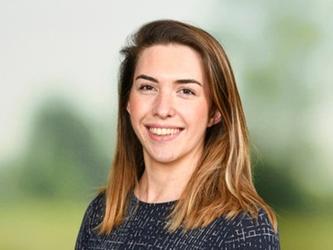Listening to rural voices: Countryside research
“I don’t think I’ve ever had the opportunity to voice my opinion on rural Wales before.” This comment was made in an online focus group conducted as part of a study on rural youth in Wales, led by independent consultant Ffion Storer Jones. Tired of the lack of research undertaken on rural young people in the nation, the study focused on young people, aged 16 to 28, living, working or studying in rural Wales, and the report highlights their views, needs and aspirations.
An unexpected benefit of the pandemic was the variety of participants it allowed to recruit. For example, one group of six for the research on rural youth in Wales included a student from Ynys Môn (Anglesey), a farmer from Sir Benfro (Pembrokeshire), and a single mum from Cwmbrân. Would these articulate young participants ever have ended up in the same focus group without Zoom?
Early in the first lockdown, we had farmers drive to a lay-by down the road to join a focus group from their smartphones, sitting in their trucks. One of these projects was for agricultural technology start-up CropSafe, which is creating an app to help farmers predict weather and soil conditions for harvesting. Farmers from the Scottish Highlands, Northern Ireland, mid-Wales, Cumbria, Norfolk and Devon came together online to share feedback on their month-long trial of the app.
One interesting insight that came out of these groups is that farmers may not be as concerned about data privacy issues as other consumer groups. In response to a question about GPS tracking built into an app, one participant said: “I’m not too bothered if people know which field I’m in.”
In fact, we have found that farmers are becoming more and more tech-savvy with the rapid rise of agricultural technology and the rollout of 4G across rural areas. FieldMouse Research launched its Opinion Harvester panel in partnership with Alligator Digital earlier this year to allow farmers to provide their views for research.
In an online survey for research undertaken on rural youth in Wales, funded by the Henry Plumb Foundation, 89% of respondents said they still live in the place where they grew up. However, 60% are considering moving to a town or city, as 68% of respondents said they found it difficult to find work where they lived. Only 11% positively stated that they “have a say in the way that decisions are made in rural Wales”.
With 80% of young people in Wales agreeing that “the Welsh language and its future is very important”, how often do researchers consider Welsh speakers as a minority group with a distinct cultural identity that frequently attracts prejudice, and ensure inclusion? The same, of course, is also true of Gaelic speakers in Scotland.
“Speaking Welsh and going through school in Welsh, I’m sure I’ve had so many more opportunities than a non-Welsh speaker would have,” said one respondent. Only three per cent of those surveyed spoke no Welsh at all.
Other major issues raised by young participants in Wales are shared with many other rural areas across the UK. For example, it was felt that bus timetables are targeted towards the older generation, leaving younger people reliant on having their own car or getting a lift. Second homes were also raised, and it was felt that the government should legislate to ensure homes are affordable for people who wish to live and work in the area where they grew up.
We’ll only know that rural voices are heard in the research industry when focus groups are recruited in Cornwall or Northumberland on, for example, a new brand of biscuit or cat food for a client in the fast-moving consumer goods sector.
Rural fieldwork dos and don’ts:
Do
- Interview by telephone and post out material
- Expect participants to have never taken part in research before.
Don’t
- Wait for a ‘rural issue’ project to turn up – include a rural quota in all fieldwork.
Paul Flatters and Sarah Morris are the co-founders of FieldMouse Research.
THIS ARTCLE WAS FIRST PUBLISHED IN THE OCTOBER 2021 ISSUE OF IMPACT.

We hope you enjoyed this article.
Research Live is published by MRS.
The Market Research Society (MRS) exists to promote and protect the research sector, showcasing how research delivers impact for businesses and government.
Members of MRS enjoy many benefits including tailoured policy guidance, discounts on training and conferences, and access to member-only content.
For example, there's an archive of winning case studies from over a decade of MRS Awards.
Find out more about the benefits of joining MRS here.












0 Comments